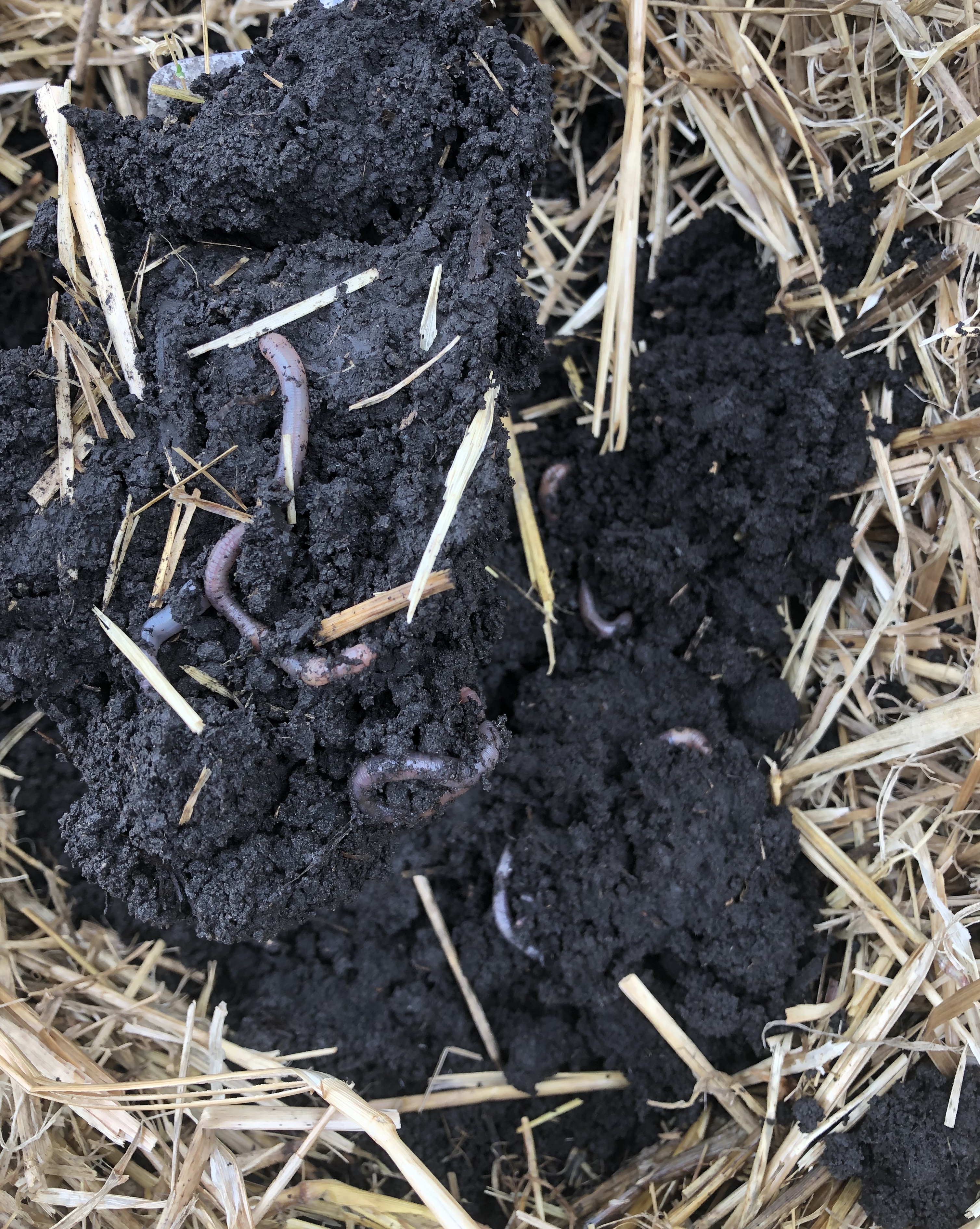
What lives in our soil?
No till gardening is a system of gardening where the soil is mulched to prevent soil erosion, conserve water and reduce the pressure of weeds. In no till, we are protecting the ecosystem of the microorganisms that live there which in turns helps our soil health improve.
Soil food web
To understand healthy soil, we need to understand the soil food web.
The soil food web results in organic material being decomposed in our soils into forms of nutrients that the plants can use to grow. It also gives home to healthy soil creatures that can help control plant disease and insect infestation by controlling the population numbers in the soil. It will affect the structure of the soil by building pores and forming aggregates that support those pores in our soil and also can help provide a method of carbon sequestration.
Bacteria – Bacteria in our soil play a major role in decomposing organic matter like plant litter in our soil. They help convert the organic matter in the soil into usuable forms of nutrients for plants. One of the decomposers is Actinomycetes which produce geosmins which are organic particles that give soil it’s “dirt” smell. They are also the source of many of our antibiotics! Bacteria are very active in the breakdown of straw mulch.
Bacteria can also form symbiotic relationships with plants like legumes and alfalfa to help these plants fix nitrogen in the soil.
Fungi
Fungi also play a major role in decomposing organic material. They also participate in symbiotic relationships with plants by creating long fungal filaments that can transport nutrients over long distances to the plants. In return, the plant can spill out up to 40% of the carbohydrates it produces to feed the fungi in the soil. Fungi are very active in the break down of wood chip mulch.
Protozoa
Protozoa include ameobas, ciliates and flagellates. They are much bigger than bacteria but still microscopic in size. These eat bacteria and organic matter in the soil that contain more nitrogen than they need so they spit out the excess in a form of nitrogen that plants can use.
Nematodes
Nematodes are tiny worms that can eat bacteria and fungi and in turn release extra nitrogen in a form plants can use. Nematodes can become plant parasites by feeding on plant roots and causing harm. Other types of nematodes are beneficial as they eat larvae of harmful insects and can be used to control the population of harmful insects like fungus knats.
Arthropods
Arthropods in our soils include beetles, sowbugs, spiders, mites, centipedes and millipedes. They improve our soil structure by burrowing and making fecal pellets. They can “shred” dead plant material into smaller bite sized pieces for bacteria to consume. They can also move bacteria around in the soil. Some arthropods are beneficial insects that pray on harmful insects to our garden plans like parasitic wasps that can be used to control whitefly and cabbage catapillers.
Earthworms
Earthworms are major decomposers. They eat organic matter in the soil and become microbe factories to keep up the bacteria levels in the soil. They shred and bury organic matter in our soils and improve water filitration by creating pores in our soils with their burrowing. These pores can also be used by plant roots to have easy spaces to grow into. Their fecal pellets are high in usuable nutrients for our plants to use. Earthworms can alter soil structure by bringing up minerals from lower down in the soil and burying organic matter laying on top of the soil. They are an important food source for birds. There is no need to mix compost into your soil, earthworms will do the job for you! Seeing a lot of earthworms in your soil is a good indicator that you have healthy soil.
When we support the delicate ecosystem of these organisms, we start to support our soil's ecosystem and in turn, improve our soil health. Tilling can destroy the ecosystem, requiring these organisms to rebuild their homes every time the soil is tilled. Providing mulch can also provide a habitat and food source for the microorganisms that contribute so much to our garden's success.

